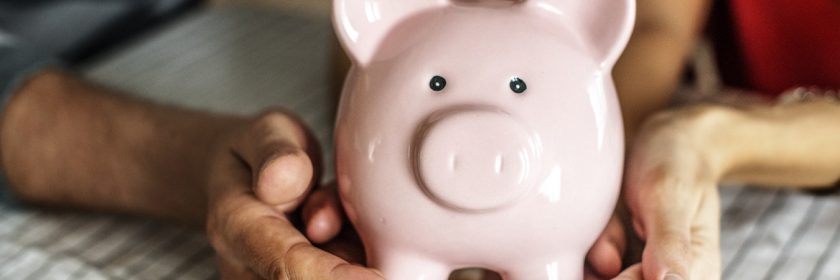How to Prepare and Save for Your Down Payment on a House
Table of Contents
- 1 Let Good Planning Lead You To Your Dream Home
- 2 Understanding Down Payments And Mortgages
- 2.1 Agree to the terms and conditions of the mortgage, including the designated interest rate.
- 2.2 Specify the amount of time you will pay back the money
- 2.3 Make monthly payments consisting of principal, interest and taxes
- 2.4 Understand mortgages are secured by the home itself.
- 2.5 Provide Financial Records
- 3 How Much Money Should You Put Down?
- 4 How Your Mortgage Rate Comes Into Play
- 5 Frequently Asked Questions
- 6 Down Payment Savings Tips
- 7 Using RRSPS As A Down Payment
- 8 Conclusion
Let Good Planning Lead You To Your Dream Home
Have you been saving up to buy a home for years, only to feel like you’ll never have enough for a down payment? If so, you’re not alone.
Coming up with a large enough sum for a house down payment is often the biggest obstacle prospective homebuyers face when trying to pave the path to homeownership. In fact, many hopeful buyers feel this is a near-impossible task.
While it’s true that in today’s red-hot housing market, it can be difficult saving up for a down payment as home prices skyrocket, with the right strategy and personal commitment on your end, it’s possible to achieve your dream of buying a home.
We’ve taken the time to pull together a wealth of mortgage info in one convenient location to help you plan and save for your first down payment.
Here’s what you need to know about what to expect, strategies to find mortgage rates that set you up for success, and how to save up for a good down payment.
Understanding Down Payments And Mortgages
By definition, a down payment is the amount of money given to the seller during the closing process when you buy a home.
Most buyers get the money from their down payment from personal savings or money received from the sale of a previous home or property.
The remaining balance of the home’s price will be covered by the mortgage, which is essentially a loan from a bank, credit union, or another lender willing to provide money to help you get a home.
When pursuing mortgage financing you’ll need to:
Agree to the terms and conditions of the mortgage, including the designated interest rate.
You’ll have a choice between fixed-rate (which stays the same for the life of the loan), adjustable rates or a hybrid type of loan.
The adjustable rate fluctuates depending on current rates, and with the hybrid one, you have a fixed rate component and an adjustable rate component.
Specify the amount of time you will pay back the money
(i.e. 25 or 30 years).
Make monthly payments consisting of principal, interest and taxes
Some people choose to pay taxes outside of the mortgage, but it’s common for people to prefer making one payment.
Understand mortgages are secured by the home itself.
For instance, if you default on your loan, lenders can rightfully take possession of the home and sell it to recover its losses.
Provide Financial Records
Before funding a mortgage, due to anti-money laundering laws, lenders will need to see a 90-day history of where the down payment funds come from.
How Much Money Should You Put Down?
In Canada, the minimum down payment is 5% of the purchase price. However, if you have the means to do so, you can avoid costly mortgage insurance premiums by providing a down payment of at least 20 per cent of the purchase price.
Ideally, the more you can put down the better as it brings down the total of your overall loan. In turn, this means you will have smaller mortgage payments and pay less interest over time.
How Your Mortgage Rate Comes Into Play
Finding The Best Mortgage Rates
To maximize your down payment and get the most for your money, you’ll want to find the best mortgage rates.
Before you start house hunting, get pre-approved to see what type of loan and interest rates you qualify to receive. This will give you a better idea of the price range you should be looking at—keep in mind you may be approved for more than your budget can handle.
A good mortgage broker can advise you, help you shop around for the best mortgage rates, and assist you in finding any potential programs you might qualify for, such as ones for investment properties or first-time home buyers.
Frequently Asked Questions
Do All Lenders Require A Down Payment?
The Canadian government outlawed zero down payment mortgages in 2008, but it is still possible to get a mortgage without it. You can achieve that by borrowing the minimum down payment, which depends on the overall price of your potential new home.
For example, if the purchase price is less than $500,000 – the minimum down payment will be 5%. For a purchase from $1.000.000, a minimum down payment will be 20%.
With a Flex Down approach, you can use your credit card to borrow the money for your minimum down payment. However, note that this program is difficult to qualify for.
Can You Use A Loan/line Of Credit Or Credit Card Toward Down Payment?
First, let’s make it clear what both phrases mean.
A loan is one of the ways you can borrow money from lenders. It has a non-revolving credit limit, meaning you have access to the money just once and make payments until it’s paid off.
With a line of credit, you receive a credit limit and make regular payments to pay it off. But, you have repeated access to the line of credit, while it’s active.
You can use HELOC for a down payment, but other resources are only permitted by some lenders. Note that borrowing money for the source of down payment can impact your ability to qualify due to debt to income ratio requirements
Can I use Money Gifted to Me For a Down Payment?
Yes, but the process varies from lender to lender. It is important to have it in writing that you are not obligated to give the gifted money back. Most lenders prefer the gifted funds be from an immediate family member. The donor must sign a gift letter template specific to the financial institution lending you the mortgage.
Down Payment Savings Tips
The sooner you start planning and saving for your new home, the better. It’s never too early to start.
A year before you plan to buy, check your credit score. If you see errors, fix them because the higher you boost your score, you increase your chances of getting better interest rates.
Next, set up a budget and, if needed, make some lifestyle changes. It might surprise you to learn all the ways you can save.
- Set a fixed amount to put into savings each paycheck. (Tip: Place money in a Tax-Free Savings Account to avoid paying taxes on interest you are making.)
- Reduce high-interest debt ASAP by paying down or transferring credit card debt to lower rate cards.
- Find a cheaper or smaller apartment to cut back on your rent expense.
- Trade your car in for a less expensive one or sell it and use public transportation.
- Cut back on cable TV and landline costs by streaming shows and using your cell as your primary phone.
- Avoid take-out and make your own meals.
- Dial back vacation spending by travelling to low-cost destinations or by taking staycations.
- After you set a budget and pinpoint ways you can scale back on your current spending, be sure to stick to it.
Using RRSPS As A Down Payment
If you’ve been more focused on saving for retirement than saving for a home, don’t worry! You don’t have to spend months and months saving thanks to a few handy programs.
The Government of Canada’s Home Buyers’ Plan (HBP) allows first-time homebuyers to borrow up to $60,000 in a calendar year from their registered retirement savings plan (RRSP). In its most basic terms, you’re loaning yourself the money from your own retirement plan and will need to repay this loan within 15 years.
This plan gives you tremendous flexibility if you’ve been planning for retirement but now want to put roots down in a community. Better still, if you’re buying with a partner, and you’re both eligible for the plan, you can access up to $120,000 for a down payment on a qualifying home!
The catch? You will have to repay your RRSP, but that’s about it!
Put all your savings into the bank to put towards your down payment. A firm commitment to cost-cutting and saving helps you reach your goal.
Finally, as you save money and prepare to buy, be sure to also learn everything you need to know about avoiding the top mortgage mistakes.
Conclusion
Buying a home is a big decision and takes up courage, especially in these times when the prices are skyrocketing. However, if you take all the precautions and advice, it can be a breeze. If you need help, don’t hesitate to reach out. We can help!

Chris Allard’s experience in the field means he can get you offers with over 50 financial institutions lending in Ottawa. Every lender has many mortgage products they offer, which means Chris and his team will make sure a mortgage caters to your needs while also ensuring you get a competitive rate. Chris Allard is a proud mortgage broker of Smart Debt Mortgages, independently owned and operated. Smart Debt broker #12236.

